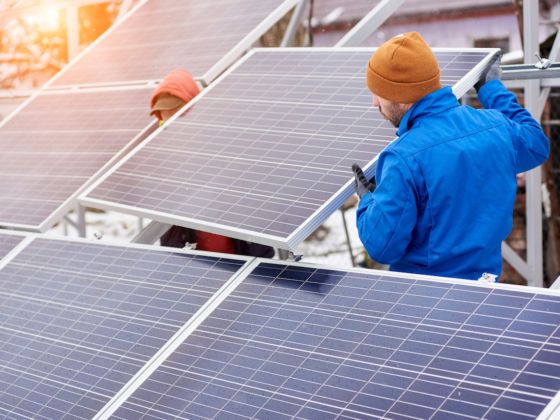This is The Climate Win, the most positive sustainability news around the world every week.
This week’s Climate Win focuses on green banks and what they fund. These are not traditional banks where you open accounts or make deposits. Rather, they exist as vehicles to connect investors with sustainable business and projects — providing much-needed funding for things like renewable energy development, clean building and housing, and other large-scale projects.
